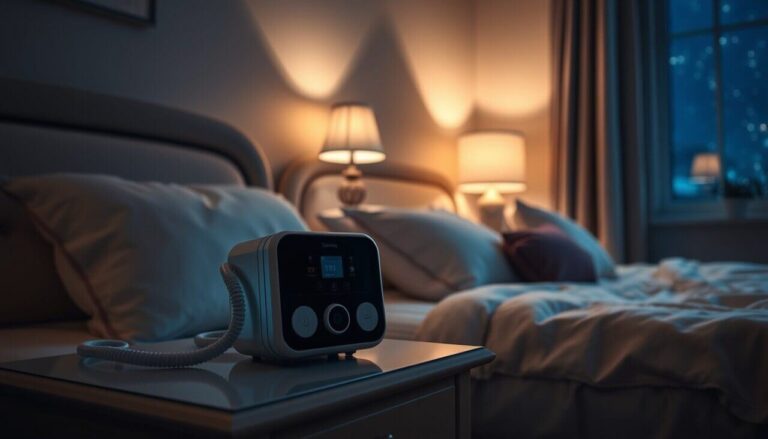The Vicious Cycle of Stress and Insomnia: Breaking Free for Better Sleep
With stress levels on the rise, many people find themselves trapped in a vicious cycle of stress and insomnia. This harmful interplay between the two can wreak havoc on our sleep health, leaving us feeling worn out and drained.
Insomnia is a condition characterized by difficulty falling asleep or staying asleep. It often stems from the chronic stress that plagues our daily lives. The more stressed we are, the harder it becomes to get a good night’s rest, leading to a cycle of sleepless nights and increased stress levels.
For professionals with high-pressure jobs, it is crucial to understand the connection between stress and insomnia. Then, take proactive steps to break free from this detrimental cycle.
By implementing stress-reducing techniques and establishing healthy sleep habits, it is possible to improve sleep quality and overall well-being.
In this blog post, we will explore the impact of stress on insomnia and provide insights on breaking free from this cycle for better sleep health.
The Biology of Stress and Its Impact on Sleep
The Stress Response System
Stress is a natural physiological response that activates the body’s “fight or flight” mechanism. When faced with a stressful situation, the adrenal glands release hormones like cortisol and adrenaline to prepare the body for action.
This response is crucial for survival in dangerous situations, but chronic stress can disrupt the delicate balance of these hormones. This leads to a host of negative consequences, including disrupted sleep patterns.
How Stress Hormones Affect Sleep Patterns
Systemic release of stress hormones not only primes the body for action but also interferes with the body’s ability to relax and fall asleep.
Cortisol, in particular, can keep the mind and body in a state of heightened arousal, making it difficult to wind down and achieve restful sleep. This can lead to difficulties falling asleep, staying asleep, and experiencing deep, restorative sleep cycles.
Furthermore, elevated levels of adrenaline can increase heart rate and blood pressure, further exacerbating sleep disturbances.
Insomnia and Its Consequences on Daily Functioning
Defining Insomnia and Its Variants
Insomnia is more than just difficulty falling or staying asleep; it’s a persistent struggle that extends beyond the night, impacting your ability to function optimally during waking hours. Variants such as chronic insomnia and comorbid insomnia can exacerbate these effects, making it even more necessary to address and interrupt this cycle.
The Far-Reaching Effects of Chronic Sleep Deprivation
Defining the impact of chronic sleep deprivation on your daily functioning is crucial in understanding the true toll it takes on your overall wellbeing.
Chronic sleep deprivation can lead to cognitive impairment, decreased productivity, increased risk of accidents, and a compromised immune system. To underestimate these effects would be to disregard the significant role that sleep plays in maintaining our health and vitality.
Strategies to Mitigate Stress and Improve Sleep
Behavioral Techniques for Stress Reduction
Despite the detrimental effects stress can have on sleep, there are effective behavioral techniques that can help in reducing stress levels.
An important method is mindfulness meditation, which has been shown to decrease stress and improve sleep quality. Moreover, progressive muscle relaxation and deep breathing exercises can also aid in calming the mind and body, promoting better sleep.
Sleep Hygiene and Environmental Modifications
Improving sleep hygiene practices and environmental modifications can play a significant role in breaking the cycle of stress and insomnia.
One should create a comfortable and calming sleep environment, with a cool temperature, minimal noise, and darkness. Additionally, incorporating a consistent sleep schedule and limiting screen time before bed can further enhance sleep quality.
Therapeutic Approaches and Interventions
Cognitive-Behavioral Therapy for Insomnia (CBT-I)
After identifying stress as a common culprit in disrupting sleep patterns, it is crucial to explore interventions that target both stress and insomnia.
Cognitive-Behavioral Therapy for Insomnia (CBT-I) is an evidence-based approach that has shown promising results in breaking the cycle of stress and poor sleep.
Through CBT-I, individuals can learn to identify and challenge negative thought patterns that contribute to insomnia, develop healthy sleep habits, and manage stress more effectively. This therapy offers a holistic approach to addressing the root causes of sleep disturbances, leading to improved sleep quality and overall well-being.
Pharmacological Options and Considerations
On the other hand, for individuals who may require additional support in managing their sleep difficulties, pharmacological options can be considered.
While medications can provide short-term relief from insomnia symptoms, it is important to approach them with caution, as they may come with potential side effects and risks of dependency.
Consulting with a healthcare provider is imperative to determine the most appropriate medication and dosage based on individual needs and health considerations. This approach should be complemented with other non-pharmacological interventions for optimal long-term sleep health.
Conclusion
Presently, we have probed into the intricate relationship between stress and insomnia.
We’ve uncovered the vicious cycle that perpetuates sleep disturbances.
By understanding the mechanisms at play, individuals struggling with poor sleep due to stress can take proactive steps to interrupt this cycle.
Implementing stress-reduction techniques, establishing a bedtime routine, and seeking professional help when necessary are vital strategies for breaking free from the grip of insomnia.
With dedication and a willingness to prioritize sleep health, individuals, including those in high-pressure professions, can cultivate improved sleep patterns and overall well-being.
It is through these efforts that individuals can reclaim restful nights and enhance their quality of life.







